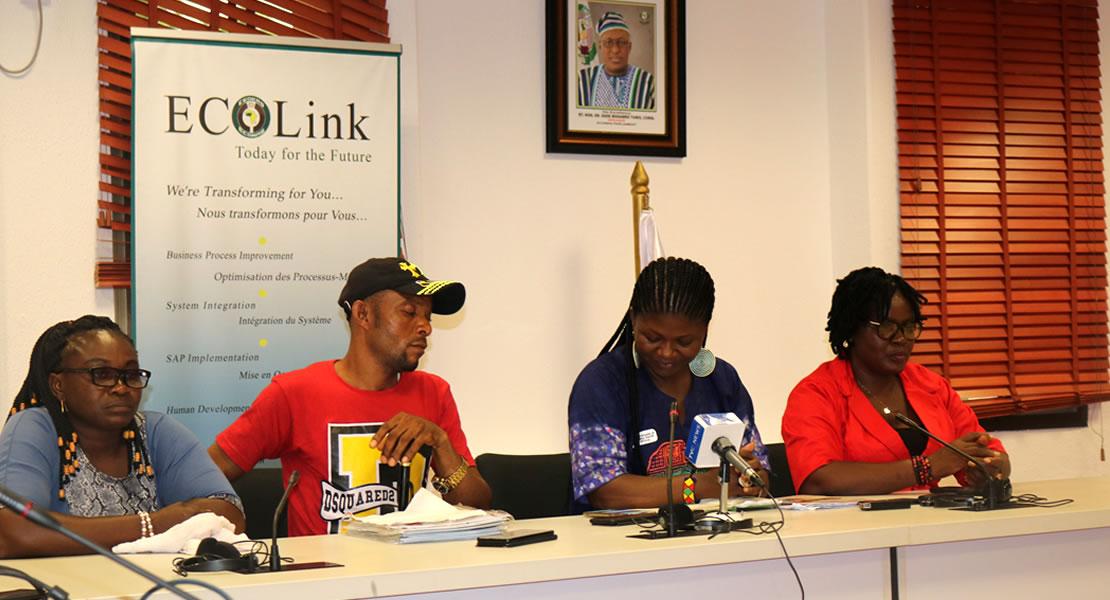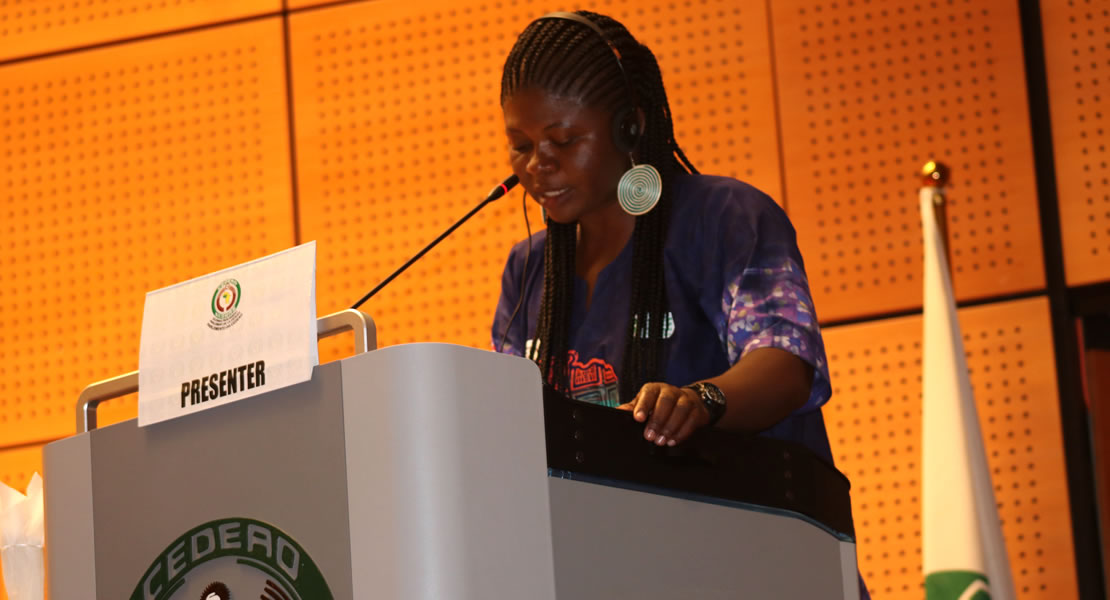
Friends of the Earth – Africa (FoE-Africa) has presented an eight point resolution to the 73rd Ordinary Session of the African Commission on Human and Peoples Rights (ACHPR) in the Gambia.
 The resolutions are geared towards finding solutions to the increasing rate of social, environmental and gender violations connected to land grabs and deforestation for industrial plantation expansion by agro-commodities companies in Africa with grave impacts on local communities, forest dependent peoples, small holder farmers with aggravated consequences on women and their families.
The resolutions are geared towards finding solutions to the increasing rate of social, environmental and gender violations connected to land grabs and deforestation for industrial plantation expansion by agro-commodities companies in Africa with grave impacts on local communities, forest dependent peoples, small holder farmers with aggravated consequences on women and their families.
FoE-Africa asserts that those defending the rights of these impacted communities have also not be left out of the brutalities as they become targets for attack for resisting injustice and speaking truth to power.
Recalling the African Commission on Human and Peoples Rights mandate to promote and protect human and peoples’ rights in Africa under the African Charter on Human and Peoples Rights (African Charter), recognizes the rights of forest dependent peoples and local communities impacted by large scale agro-commodities expansion.
 Considering the report of the working group on the rights of indigenous communities in Africa, adopted by the Commission in 2003 at its 28th Ordinary Session, and which among others recognizes that protection of communal rights to land is fundamental for the survival of indigenous communities in Africa, Friends of the Earth-Africa (FoEA) through the NGO Forum, hereby calls on the African Commission to:
Considering the report of the working group on the rights of indigenous communities in Africa, adopted by the Commission in 2003 at its 28th Ordinary Session, and which among others recognizes that protection of communal rights to land is fundamental for the survival of indigenous communities in Africa, Friends of the Earth-Africa (FoEA) through the NGO Forum, hereby calls on the African Commission to:
- Have its institutions, such as the working group on extractive industries, environment and human rights, conduct a research to address the adverse impacts of largescale monoculture plantations in Africa, including country visits to heavily impacted countries and communities;
- Ensure that the perpetrators of deforestation and related human rights violations, including transnational companies and their financiers, are held accountable for their inputs and do not continue their practices in/with impunity;
- In addtion provide assistance to authorities to implement a moratorium on the expansion of landbased concessions for monoculture plantations that lead to deforestation, biodiversity loss and related human rights violations, and support authorities to install programmes that promote agroecology and family farming a community based agriculture devoid of chemical use and community forest management methods, including providing access to finance for smallholders;
- Halt the criminalization and harassment of Environmental Human Rights defenders including Women Environmental rights defenders and provide access to justice for defenders and affected indigenous people and local communities;
- Also respect the rights of indigenous peoples and local communities to land including women’s access and ownership rights to land in Africa and protect and restore the environment;
- Furthermore, ensue that the ACHPRs considers the annual conduct of human rights and environmental audits within member states;
- Encourage African government and the African Union to engage proactively in the process towards a strong and effective UN Binding Treaty on transnational corporations and human rights, in order to stop corporate impunity and hold corporations accountable including agro-commodities companies for their environmental and human rights violations in Africa.
- Acknowledging that industrial plantation expansion by agro-commodities companies is the single biggest contributor to deforestation and biodiversity loss in Africa, with deforestation the second biggest contributor to climate catastrophe after oil and gas exploration activities in the continent.
 It noted that in 2020, 331 defenders were killed across 25 countries around the world with at least 227 of them (EHRDs) were either murdered, brutalized or silenced; making the agro-commodities sector one of the most dangerous sectors for Environmental Human Rights Defenders (EHRDs), in Africa.
It noted that in 2020, 331 defenders were killed across 25 countries around the world with at least 227 of them (EHRDs) were either murdered, brutalized or silenced; making the agro-commodities sector one of the most dangerous sectors for Environmental Human Rights Defenders (EHRDs), in Africa.
FoEA further observed that millions of Africans experience adverse impacts by industrial monoculture plantations, consisting of crops such as oil palm, timber among others.
Pollution of soil and water with chemicals and waste, the destruction of water sources, deforestation, and erosion are just some of the environmental impacts; whereas plantations are also structurally connected to human rights violations including harassment and violence – specifically against women and environmental human rights defenders, land rights violations and labour rights violations.
Kwaku Sakyi-Danso/Ghanamps.com